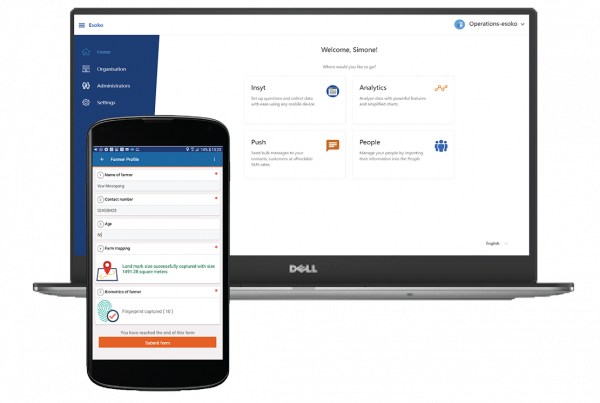Quality data is the foundation of effective Social Inclusion programs, evidence-based data that facilitates the government to identify, target, and support those in need with precision. Esoko Limited after a 4-day training for over 2000 selected Field Enumeration Officers for the second phase of the Ghana Household Registration in the Central Region of Ghana.
Following thorough training, Esoko will deploy the trained field officers to the 14 selected districts in the Central. The Field Enumeration Officers will collaborate with different stakeholders in the various communities to collect data, under the auspices of the Ministry of Gender, Children, and Social Protection making use of our dependable and advanced technology tool known as the Insyt-Mobile Data Collection Application.
Data collection is crucial for promoting social inclusion considering the following function it plays for the government administration:
Targeted Interventions: Accurate data enables policymakers to design targeted interventions that can uplift marginalized communities. For example, if data shows that a region has low literacy rates, resources can be directed to improve education there.
Measuring Progress: Data collection provides a baseline for measuring the impact of social inclusion programs over time. It allows for the assessment of whether these initiatives are effectively reducing disparities and improving the well-being of vulnerable populations.
Resource Allocation: Government budgets can be allocated more efficiently with data. When decision-makers have a clear understanding of which areas and communities are most in need, they can allocate resources accordingly.
Identifying Disparities: Data helps identify disparities in access to education, healthcare, employment, and other essential services among different social groups. This information is vital for crafting policies that address these inequalities.
Advocacy: Data empowers civil society organizations, researchers, and activists to advocate for the rights and needs of marginalized groups. It provides evidence to support their claims and helps hold institutions accountable.
Policy Formulation: Data-driven policymaking is more likely to result in effective and equitable policies. By collecting data on various aspects of social inclusion, Ghana can better formulate policies that address the root causes of exclusion.
International Accountability: Ghana is part of the global community, and data on social inclusion can be crucial for meeting international development goals and reporting progress to international organizations.
#GNHRESOKOPHASE2 #Data #fieldwork #datacollection



